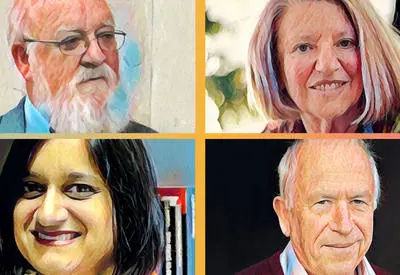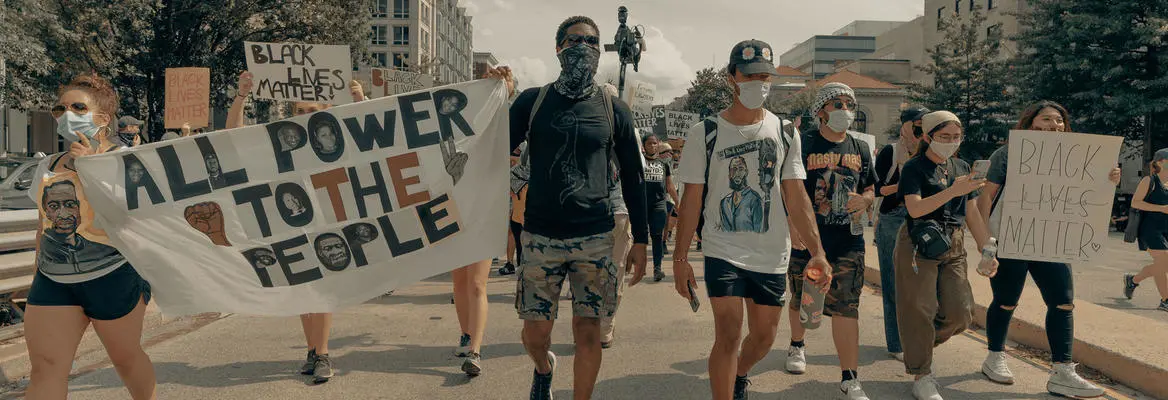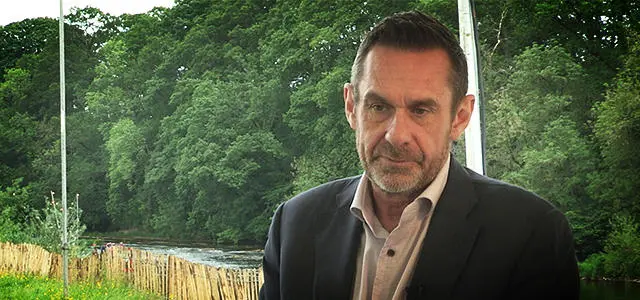Jean-Paul Sartre's support for radical opposition to all forms of oppression and Albert Camus' advocacy of restrained solidarity set the two political moralists at odds and caused a rift in their friendship. But in the recent swell of support for the Black Lives Matter movement we find a reconciliation of their positions, writes Ron Aronson - radical opposition to oppression coupled with generous solidarity.
June 2020 was a breakthrough moment in America. The largest movement in U.S. history began as a protest against police violence towards Black Americans, called for the “defunding” of the police, and has since been attacking racial inequality virtually everywhere, down to the most subtle “microagressions.” Spontaneous, without central leadership, untheorized, and unanticipated, it was immediately joined by people of all ethnic backgrounds, while strong voices insisted that it remain under Black leadership. More a mass wave than a coherent movement, the protests spread virtually everywhere in the country, even in all-white neighborhoods and small towns.
 SUGGESTED READING
Leading philosophers at HowTheLightGetsIn Global
By
It may have been outrage that moved people into the streets at first, but something deeper has clearly kept the momentum going. What kept people coming out night after night to face tear gas and police charges? Why, on a quiet Sunday July evening in deserted downtown Royal Oak, Michigan, did a tiny band of white high-school students march around carrying homemade signs chanting criticisms of the local police and “Black Lives Matter”?
SUGGESTED READING
Leading philosophers at HowTheLightGetsIn Global
By
It may have been outrage that moved people into the streets at first, but something deeper has clearly kept the momentum going. What kept people coming out night after night to face tear gas and police charges? Why, on a quiet Sunday July evening in deserted downtown Royal Oak, Michigan, did a tiny band of white high-school students march around carrying homemade signs chanting criticisms of the local police and “Black Lives Matter”?
Armed with his insights, Sartre appreciated violence from below—by workers, by native revolutionaries—as a response, the only effective one, to bourgeois and colonial dominance.
One striking feature of this movement is how deep and wide the awareness has been of racial inequality. During a pandemic whose watchword has been “We’re all in this together” is anyone not aware that the death rate among black people is three times higher than white, or that people of color are suffering far more from the economic fallout of the pandemic? The protesters know this. Moreover Americans of all ages and colors are determined not merely to call for racial equality but to enact this by expressing their solidarity and marching together. It is as if the truth of systemic inequality - from schools to housing to employment to health – has finally dawned on the white population.
This amorphous wave is a sea change that demands to be appreciated. The great majority now agrees that “Black Lives Matter” and rejects the retort that “all lives matter” as a bad-faith evasion of the essential issue.
There is a liberation in declaring equality openly. Calling it a liberation may help explain why it has been spreading like wildfire: by acknowledging that “Black Lives Matter” and demonstrating alongside black people for racial equality, white citizens are freeing themselves to express solidarity and at the same time to understand and assert that this means radical change.
The fact that this uprising has drawn together the diametrically opposed impulses of Albert Camus and Jean-Paul Sartre, the two great political moralists of the last century, is striking. Their friendship, and their historical world, broke apart over the irreconcilability of Sartre’s radicalism with Camus’s restraint. To appreciate the depth and novelty of what is happening today it’s useful to see how Camus and Sartre, and their unresolvable conflict of nearly seventy years ago, throw light on our events. And in turn, what today’s moment teaches us about the break between Sartre and Camus.
SUGGESTED VIEWING Paul Mason | In-depth Interview With Paul Mason
















Join the conversation